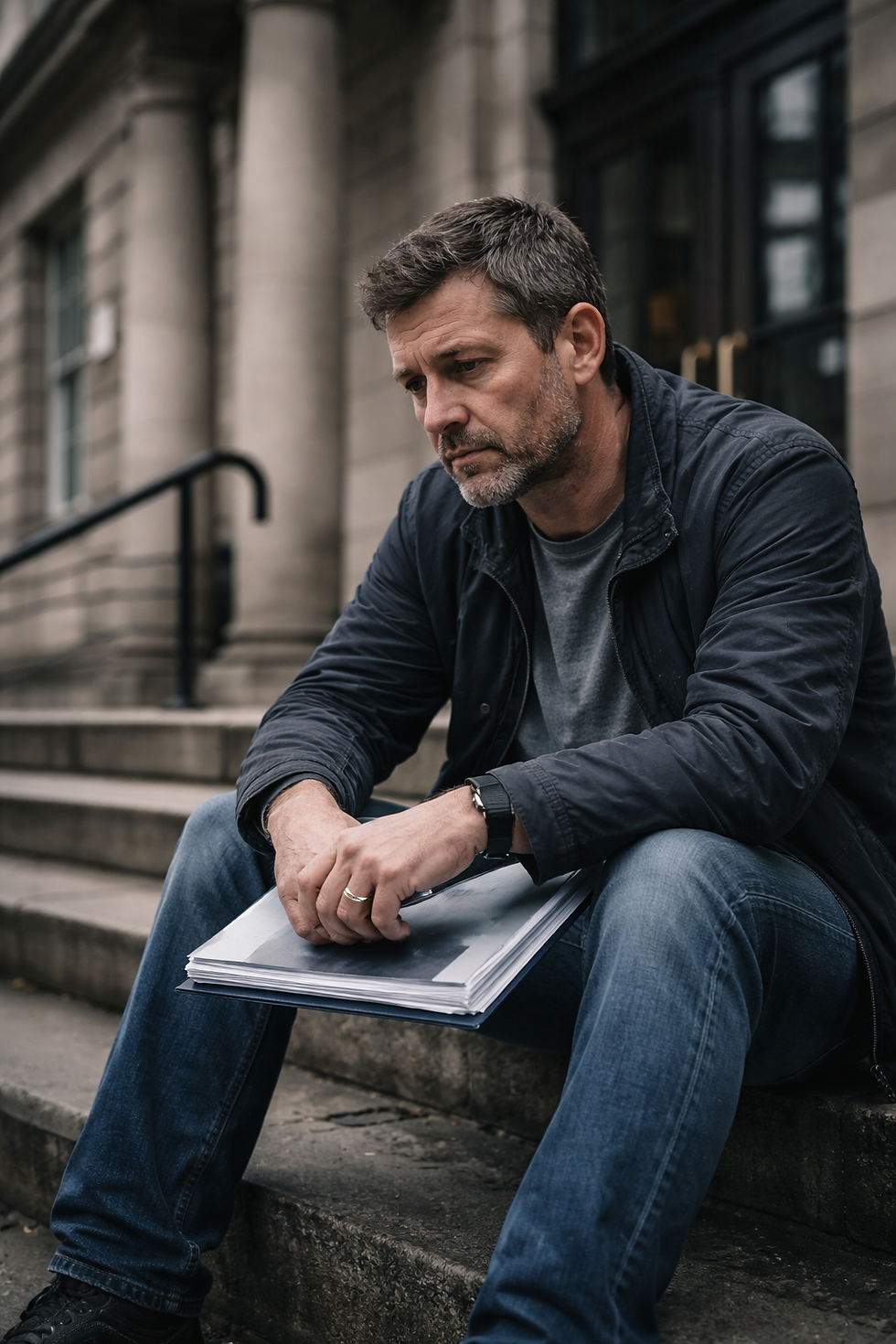But What If They’re Guilty?
- Falsely Accused Network

- Sep 4, 2025
- 3 min read
At the Falsely Accused Network, our mission is to support people across England and Wales who maintain they have been falsely accused of domestic abuse. Every week, men and women reach out to us in crisis — fearful for their future, their children, and their reputations.
But alongside the many practical questions we are asked, there is one that repeatedly comes up:
“What if they’re guilty?”
It is a fair question. It is one we have to take seriously, because domestic abuse is a devastating crime, and nobody should mistake our work for minimising or excusing it.
---
Working on a Basis of Good Faith
We are not judges, juries, or investigators. Our Network does not decide who is guilty and who is innocent. That role belongs to the courts.
Instead, we operate on a good faith basis. If somebody contacts us and tells us they are innocent, we work on that basis. Our role is to offer guidance, signposting, and peer support — not to determine the truth of the allegations.
Why do we do this? Because the reality is that people who are falsely accused are often left completely isolated. They are treated as guilty until proven innocent. They may be cut off from their children, removed from their homes, suspended from work, or subjected to humiliating police bail conditions — all before they have had a fair chance to defend themselves. Without networks like ours, many of these people would have nowhere to turn.
---
What If Someone Admits Guilt?
There are, however, situations where someone who has reached out to us admits that the allegations are true. When this happens, our position is clear and simple.
1. In the family courts
If a parent or partner admits that allegations are true, we encourage them to be honest. Courts recognise that denial in the face of evidence helps nobody, least of all children. In those cases, the responsible course of action is to acknowledge what has happened and take steps to address it. That might mean attending a Domestic Abuse Perpetrators Programme (DAPP) or engaging with other specialist services. Courts are far more likely to view honesty and a willingness to change positively than ongoing denial.
2. In criminal cases
If an individual admits guilt in a criminal matter, our advice is always the same: speak to a solicitor and be honest with them. A solicitor cannot give meaningful advice or mount an effective defence if their client is withholding the truth. The best course is to follow their legal guidance and take responsibility where it is due.

---
The Ethical Challenge
Does this trouble us? Yes, of course. Anyone who works in this area will tell you that the boundaries are difficult. Supporting the falsely accused does not mean excusing genuine perpetrators. False allegations are harmful — but so too is domestic abuse itself.
The key is that our support is always conditional upon honesty. We are here for those who say they are innocent, and we will continue to fight for their right to a fair hearing. But where guilt is admitted, the right path is clear: accept responsibility, seek help, and take steps to change.
---
Why This Distinction Matters
It matters because the integrity of our work depends on it. If we tried to “second-guess” every person who contacted us, we would fail both the genuinely innocent and the wider cause. The reality is:
False allegations exist — and they destroy lives.
Genuine abuse exists — and it also destroys lives.
Our role is not to judge, but to ensure that people falsely accused are not left without a voice, without support, and without access to justice.
At the same time, by encouraging honesty where guilt is admitted, we show that our Network does not exist to “shield” abusers. We exist to stand for truth and fairness.
---
A Final Word
So when people ask, “But what if they’re guilty?” our answer is this:
We work in good faith with those who say they are innocent. If guilt is admitted, our stance is simple — honesty, accountability, and professional help are the only way forward.
By holding this line, we can protect both the wrongly accused and the credibility of our mission.
---
📌 The Falsely Accused Network supports those falsely accused of domestic abuse in England and Wales. We are not lawyers, and nothing in this article should be taken as legal advice. For professional legal support, always consult a qualified solicitor.
Contact us:
📞 0204 538 8788



Comments